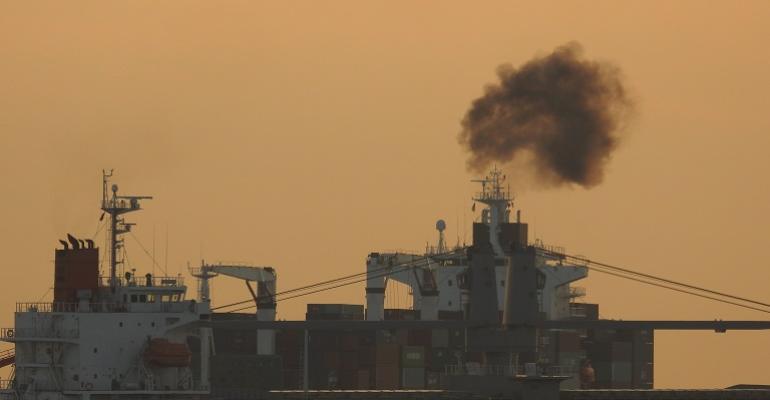Coming only days after the inconclusive IMO MEPC 76 meetings, decarbonization considerations were infused into many of the discussions throughout the first day of the event. “At the end of the day, it’s going to be regulation that sets the timetable for the industry, as a whole,” commented Hamish Norton, the President of Star Bulk Carriers.
A mainstay of the New York maritime calendar Marine Money is largely virtual this year. In line with the US re-openings and removals of many Covid restrictions, it did include some scaled down in-person events for local sponsors.
There were some insightful views on how the moves towards ESG might impact shipping finance. Norton said: “The debt capital markets will have more of an inclination to push sustainability than the equity capital markets….to the extent that you get more lenders and debt providers looking at sustainability, that may drive the industry to use less debt and more equity.”
Norton also identified another theme bubbling beneath the surface in multiple sessions- the tension between capital providers’ sustainability concerns and the timing of regulatory developments, suggesting that if these concerns mounted faster than the regulatory environment, “that could lead shipping assets to come out of public companies into private companies.” He was quick to add that he hoped that this did not happen.
Panel member Jerry Kalogiratos, the CEO of Capital Product Partners had a different take on this tension, talking about industry-wide experimentation into new fuels and technologies, saying: “We do need the investment visibility and certainty…owners- as investors, will push regulation to be more all-encompassing…and accelerate solutions that we need to have better visibility on our investments. If that means a carbon levy that will finance research and development- the needs to have been done yesterday.”
Hugo De Stoop, CEO of Euronav talked about the aftermath of MEPC 76: “I think that we will see regional regulation re-surfacing…because the no longer trust the IMO as a central body of regulation.” After pointing to the European Union’s plans to tax shipping’s carbon emissions, he said: “But it will not be the only one…it seems that the U.S. and even the Chinese are interested in such a scheme.”
Panel member Anthony Gurnee, the CEO of tanker owner Ardmore Shipping, reflecting on the IMO developments, said: “I think that this will result in a more fragmented, and, quite honestly, chaotic approach to the regulatory side.”
De Stoop framed the concerns succinctly, saying “Whether or not shipping is included in [emissions trading] schemes does not really depend on us, and that’s the problem. We no longer have the control of our destiny.”
Copyright © 2024. All rights reserved. Seatrade, a trading name of Informa Markets (UK) Limited.
Add Seatrade Maritime News to your Google News feed.  |

